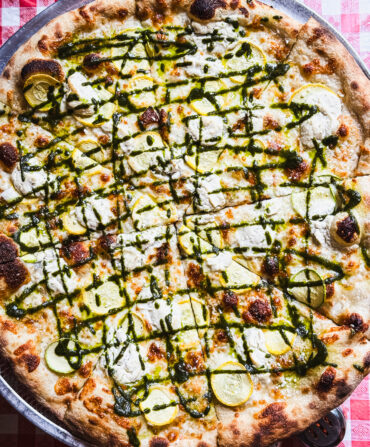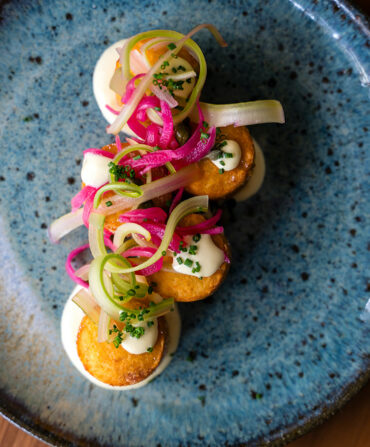Vertamae Smart-Grosvenor died last week at the age of 79. Born in Hampton County, South Carolina, she was an author, an actress, an anthropologist, a musician, a television and radio personality, and through it all a champion of Gullah-Geechee culture. The author of the influential 1970 memoir and cookbook Vibration Cooking: or, The Travel Notes of a Geechee Girl, she joined her friends James Baldwin, Nina Simone, and Maya Angelou in exploring and expressing the African-American experience before, during, and after the Civil Rights movement. “I don’t have culinary limitations because I’m ‘black.’ On the other hand, I choose to write about ‘Afro-American’ cookery because I’m ‘black’ and know the wonderful, fascinating culinary history there is. And because the Afro-American cook has been so underappreciated,” Smart-Grosvenor wrote in Vibration Cooking, where she celebrated the likes of long-cooked collard greens and okra gumbo. We asked a few of her colleagues and admirers to share the lessons she taught them.

“Vertamae gave voice to something that I don’t think anyone has articulated better since. When she talked about vibration and feeling and a pinch of this and a handful of that, she was saying that there’s an intelligence to the way we cook, an innovative genius, a flow. She brought a feeling of validity to something we couldn’t articulate before. Some people balk at the term ‘soul food,’ but to me it’s an extremely appropriate descriptor of her work. She said that from your soul, from the core of your emotional self, comes the best cooking—cooking that connects you to your past, your future, and the people around you.” —Michael Twitty, author, Afroculinaria
“Like Edna Lewis, Vertamae was instrumental in changing the way that we think about African-American contributions to American food—and Southern food specifically—at a time when no one was talking about crediting black people for anything. What she did for me and, I think, for everyone is encourage us to speak whatever our own truth is. I’m a Western beach girl, and I didn’t always feel comfortable in Southern food circles. She helped me see that we all have a role to play, and it’s important to take pride in who you are and where you come from—and to learn where you come from.” —Toni Tipton-Martin, author, The Jemima Code
“She was always true to herself. She was always, always, Vertamae—exactly who she was, and she never had any pretense about it. She could be absolutely gleeful, too. I remember when she was invited by the Southern Foodways Alliance to do a performance, sort a food opera, at the courthouse in Oxford, Mississippi. That courthouse is fraught with history, and there she was at one point in the judge’s chair. You could see her glee at the turnaround.” —Jessica B. Harris, author and African-American foodways expert
“When I heard her on NPR and got my copy of Vibration Cooking, I realized—in my soul, not just my head—that I did not have to write in ‘cookbook’ voice, or food-writer voice, or in faux hillbilly voice, or any voice other than the one that came from my core. She demonstrated for a whole generation—of women, particularly—that we didn’t need to lower our voices, choose our words to please, or tell our stories in the ways that were common and perceived as ‘correct.’ She was an example, but so thoroughly herself and her own that there was no way any of us who looked up to her could imitate her. All we could do was work to be ourselves.” —Ronni Lundy, author, Victuals
“I agreed to drive Vertamae to the Southern Foodways Alliance symposium in 2013. When I called to tell her that I’d be picking her up in Ridgeland, South Carolina, I got about a sentence in and that was it for the next two hours. She just wanted to tell stories. I think—one thing I really loved about her—that she was still surprised by all the things she’d done. She’d had such an extraordinary life. We stopped at a nice restaurant for dinner, and I just remember her looking at the menu like, ’What is this stuff?’ It was all written up in fancy language, and she was like, ‘It is what it is. It’s food. You don’t have to dress it up.’ When I dropped her off at home after the symposium, she asked if I wanted to stay for dinner. She made chicken thighs and collards, and I leaned against the wall and watched her cook the whole time. It was so simple, so intimate, and so lovely. We sat in two chairs in her living room and had this sweet meal together.” —Sara Wood, Southern Foodways Alliance







